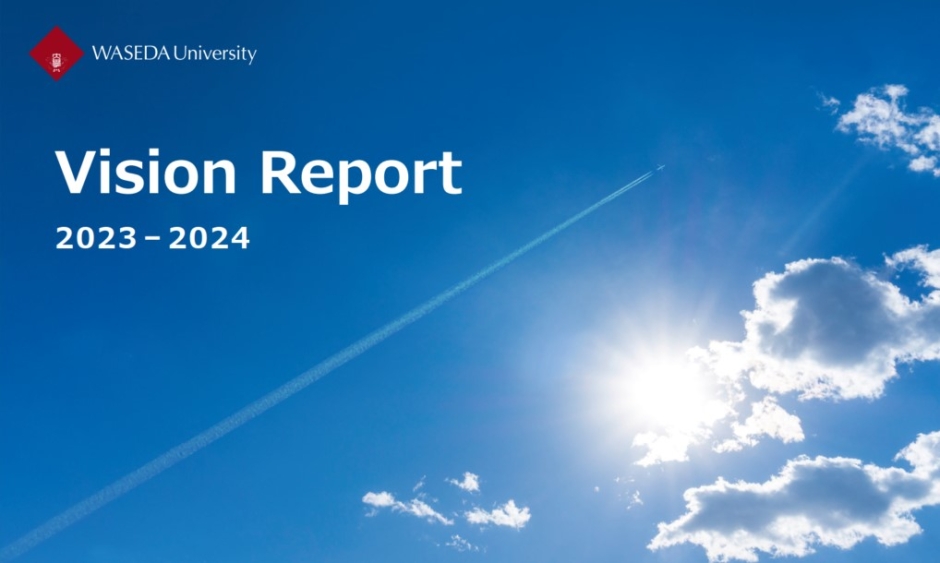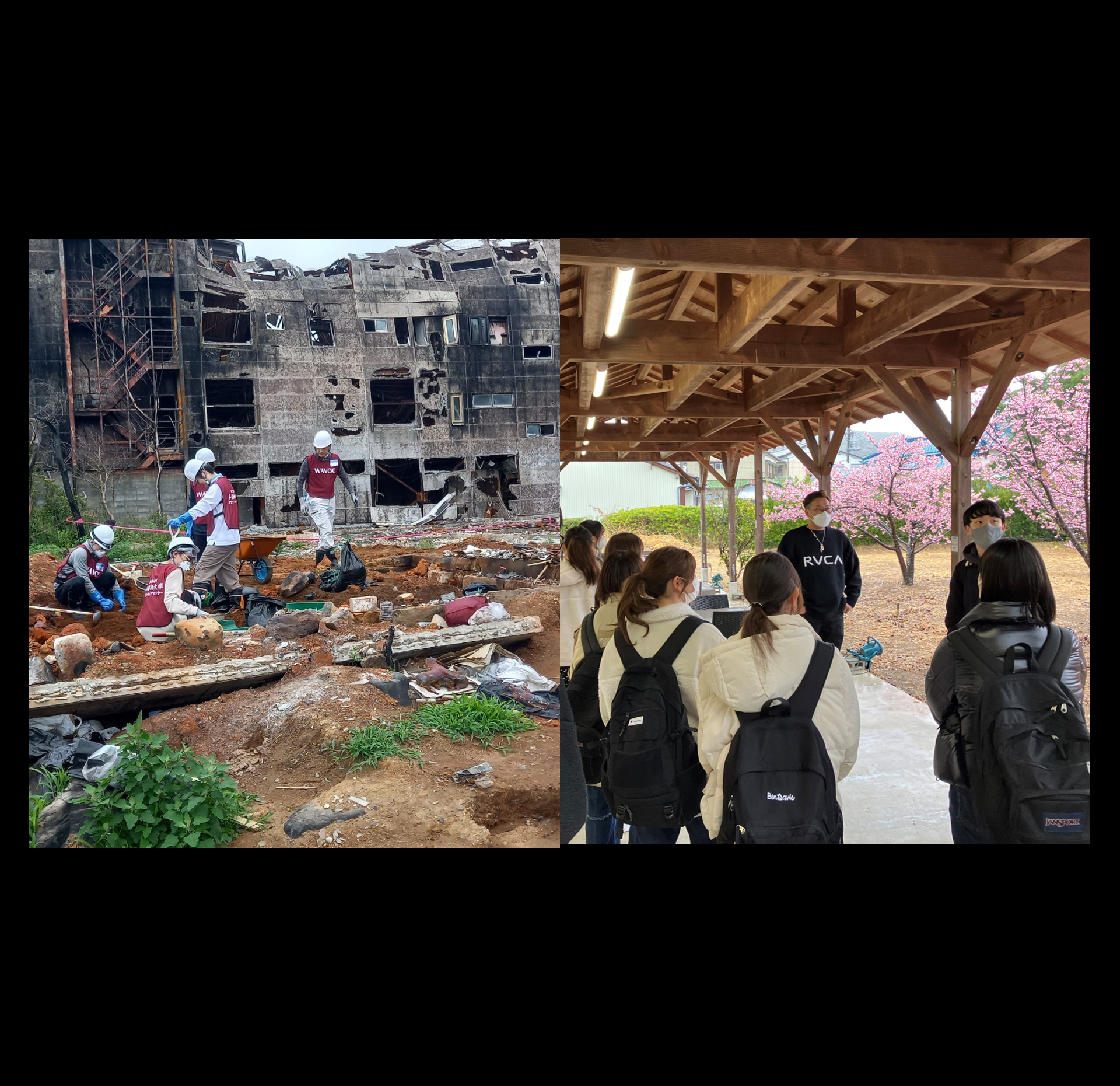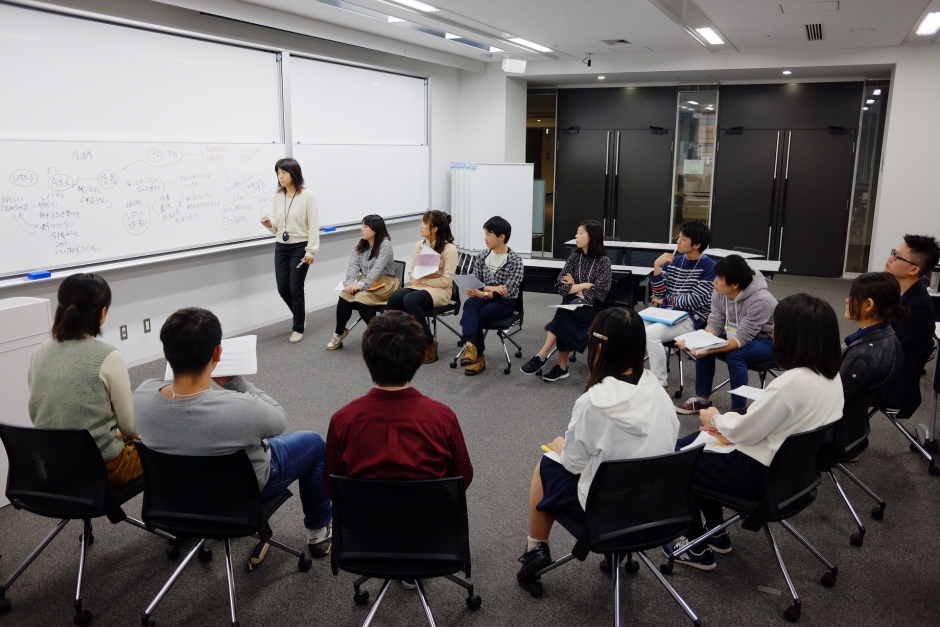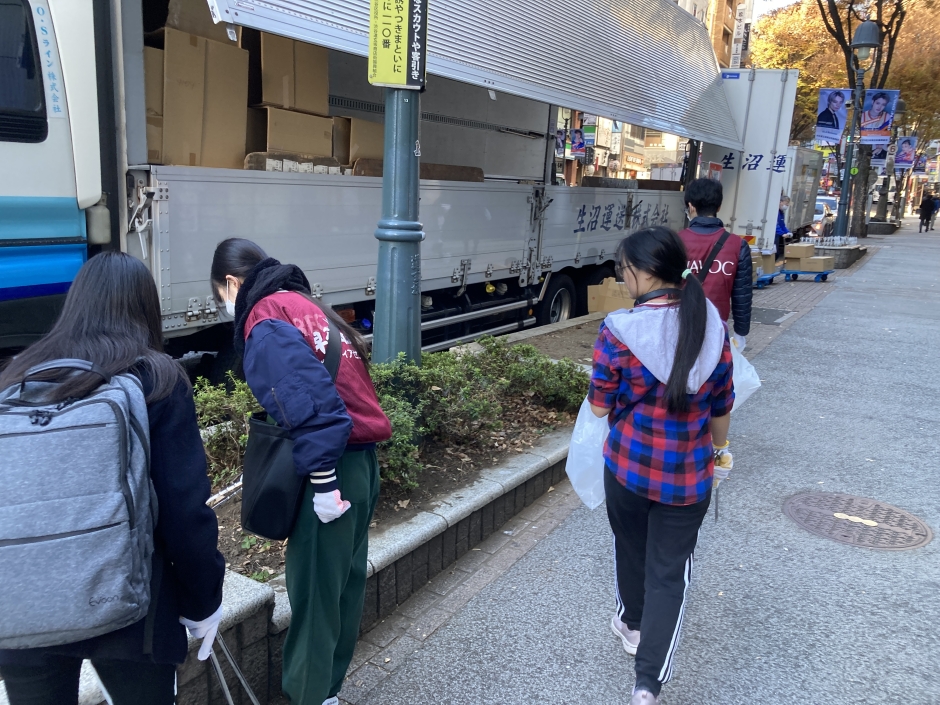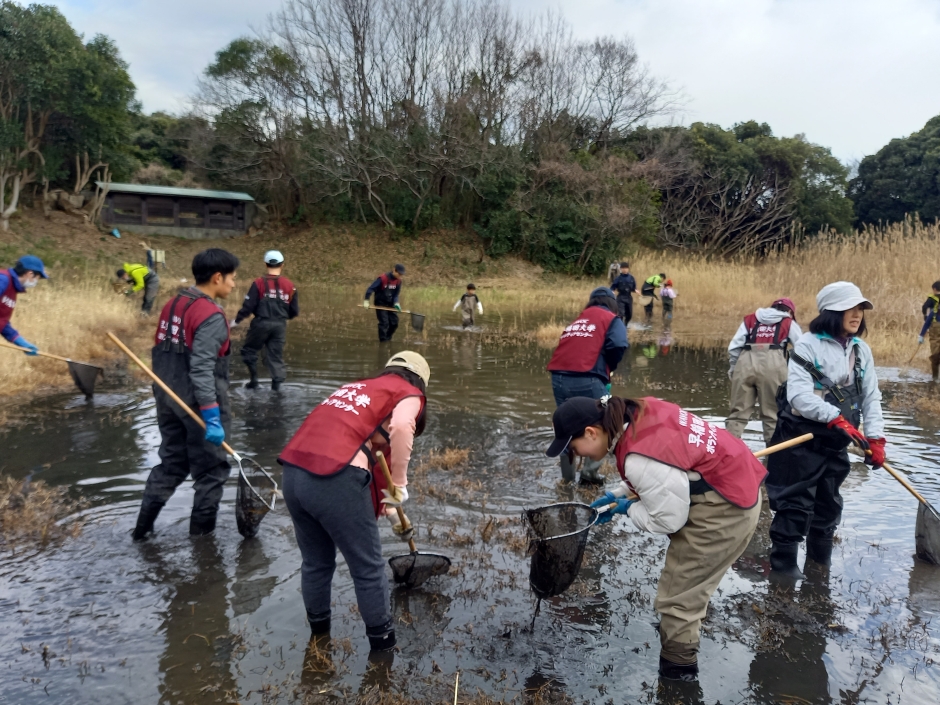- Featured Article
Contributing to the Development of Society: Regional Collaboration Activities
Integrated Report -Vision Report- 2023-2024
Mon 24 Mar 25
Integrated Report -Vision Report- 2023-2024
Mon 24 Mar 25
Waseda University’s academic research and education contribute to humanity. Waseda conducts a wide range of activities, from advanced, original research that brings impact to the world to university-wide educational activities that transcend the boundaries of humanities and sciences, and day-to-day challenges undertaken by students both on and off the campus. We will provide information on some of the activities and outcomes that have a particularly significant social impact.
(This article is reprinted from Integrated Report – Vision Report – 2023-2024)
- INDEX
-
- Regional Collaboration Activities:
Newly Established University-wide minor in Regional Collaboration / Regional Contribution - Student Voiceー
Taking on the Challenge of Regional Revitalization: Proposing Solutions to Issues Faced by the Region - Regional Collaboration Workshop
- Volunteer Initiatives
The Cycle of Academic Knowledge and Field Experience - Student Voiceー
Create your own Way of Life Through your Dealings with Others - Disaster recovery support volunteer activities
- Regional Collaboration Activities:


Regional Collaboration Activities:
Newly Established University-wide minor in Regional Collaboration / Regional Contribution


The Regional Collaboration and Regional Contribution program focuses on learning to collaborate with and contribute to regional communities, and while incorporating an interdisciplinary approach, it fosters students’ understanding of regional issues and, furthermore, their ability to propose solutions to work towards addressing some of these issues.
Through this minor, students engage in smooth dialogues with diverse stakeholders in regional societies, and cooperate toward a common goal, which enables richer regional collaborations and regional contributions.
More than simply establishing a new minor, our goal is to present a new model for collaborations in which students, the University, and regional societies work closely together towards creating new values and strive to contribute to the development of society.
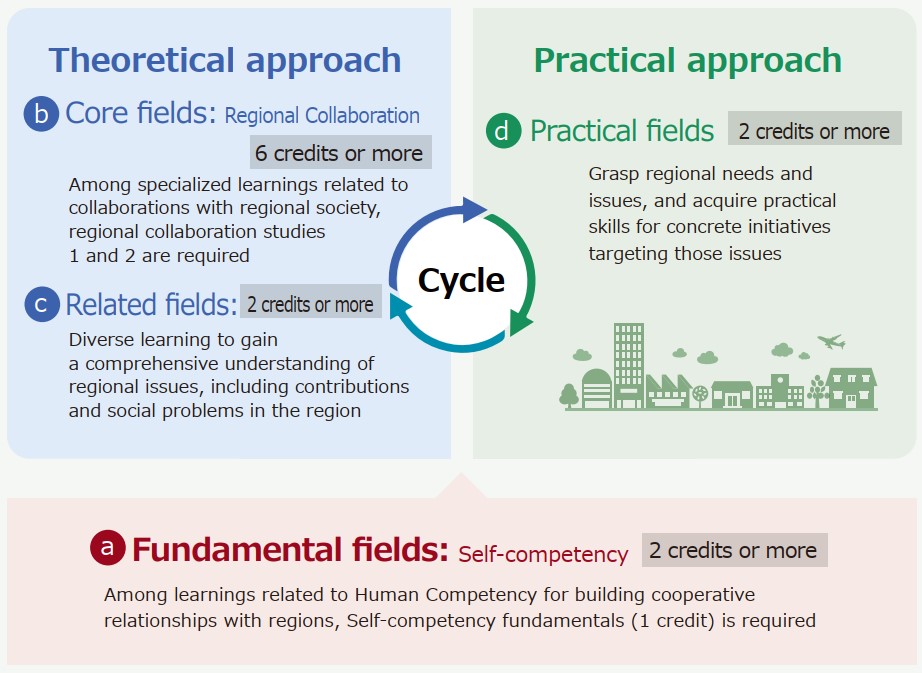
Student Voiceー
Taking on the Challenge of Regional Revitalization: Proposing Solutions to Issues Faced by the Region
"Learnings from the workshop that I can apply in my current work"

Ken Uchida; OPT, Inc.
Department of Health Science and Social Welfare, School of Human Sciences, 2023
In the summer of my third year, I participated in a regional collaboration workshop with the city of Suzu in Ishikawa Prefecture, because I wanted to gain hands-on experience with regional revitalization in addition to my studies in undergraduate school. In keeping with the theme of thinking about local careers for young people, I interviewed many people in Suzu, and created policies as a team aiming to find ways to increase the population of young people, and to make the region more prosperous.
The thing that particularly left an impression on me through these activities was a comment from one of the residents, who said, “Is regional revitalization really a good thing?” Based on this experience, I realized that it is the feelings of regional residents and the needs of the region that are truly important, and that the key is to determine what types of issues the region is facing, what the residents are looking for, and how to create businesses that resolve these issues.
I am currently working as a data analyst and marketing consultant. I truly feel that my experience in this workshop enabled me to acquire a marketing perspective where I can think about the unique characteristics and feelings of each individual customer.
Regional Collaboration Workshop
At this practical workshop, students from a variety of schools and academic years form teams to propose solutions to issues actually being faced by the region. The students travel to the region to engage in fieldwork, including group work and interviews, discussions, and activities with regional residents and representatives of the municipality. Through this fieldwork, the students refine their solutions, and submit proposals to residents and the heads of the municipalities at a final report meeting. This social collaboration education program enables students to learn about what makes the region attractive, think deeply about regional issues, and gain the ability to go through this process with their colleagues.
Workshops conducted in AY 2023
Kijimadaira Village (Nagano Pref.) / Suzu City (Ishikawa Pref.) / Tanohata Village (Iwate Pref.) / Tsubame City (Niigata Pref.) / Tsuyama City (Okayama Pref.) / Nagahama City (Shiga Pref.) / Minamiizu (Shizuoka Pref.)


Volunteer Initiatives
The Cycle of Academic Knowledge and Field Experience
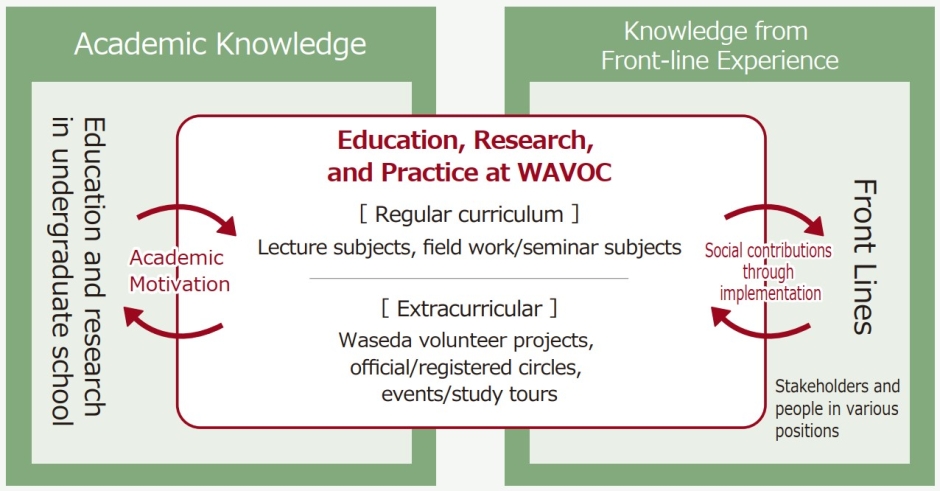
The Waseda University Hirayama Ikuo Volunteer Center (WAVOC) supports volunteer activities inside and outside of Japan that promote independent social contribution activities by students. It provides a venue where students can grow while gaining both academic knowledge and practical knowledge.
WAVOC has an extensive regular curriculum and extracurricular programs. In the regular curriculum, students travel to the sites of social issues to learn theory and practice with a focus on fieldwork, and in extracurricular programs, they can gain diverse experience through events and study tours, as well as Waseda volunteer projects led by academic staff.
“There were many moments when I realized that what might seem obvious in our daily lives is not really so obvious after all.” Students undergo a transformation through learnings and experience at WAVOC. Based on the theme of “Take a step forward, and new horizons open up,” the goal is to go beyond the growth of individual students and contribute to society.
Student Voiceー
Create your own Way of Life Through your Dealings with Others
"Meeting people of various backgrounds broadened my horizons"

Rika Iwai; Marubeni Corp.
School of Law, 2019
After I completed the Bhutan fieldwork course in my second year, I became a student staff at WAVOC, and in February of my fourth year, I participated in the Ama Town Bhutan Project Study Tour. I experienced the regions through homestays with farmers, visits to elementary schools, a tour of vocational training facilities, and exchanges with Japanese people living in Bhutan. I imagined that the happiest country in the world would be something like a “paradise”, but what I actually found was the warm hearts of the Bhutanese people, who feel happiness amid their day-to-day lives. I could see young people using social media, just like in Japan, and I learned that there were social problems as well, including drug addiction. I was reminded that the encounters you have with people when you actually visit and experience a place firsthand expand your own worldview, and lead to understanding. Now that I am part of the working world, these learnings have become a driving force for me as I take on new challenges. WAVOC opens the door to a new world that brings together students with different backgrounds as well as teachers and staff who excel in their respective fields. I still keep in touch with my fellow alumni, and these relationships will be valuable assets throughout my life.
Disaster recovery support volunteer activities
Following the Great East Japan Earthquake in 2011, Waseda University undertook recovery support activities in affected areas combining the efforts of students, faculty, and alumni, and has created a Waseda-style model for these activities. During AY 2023, the University conducted recovery support activities in regions affected by the Noto Earthquake in Central Japan, as well as in Akita and Iwaki, assisting in removing mud and debris, and carrying out furniture and household goods.
The students learned a great deal through their experiences and through interactions with the various people they met there, with some saying, “After going to the affected areas, the way that I approach natural disasters changed a lot.”


Integrated Report – Vision Report – 2023-2024
